Analytical skills Normal Reading Fiction Worksheets for Ages 3-7
5 filtered results
-
From - To
Enhance your child's analytical skills with our engaging Normal Reading Fiction Worksheets designed for ages 3-7. These interactive resources promote critical thinking as young learners delve into captivating stories and learn to make connections, analyze characters, and comprehend themes. Specifically tailored for early readers, our worksheets encourage creative exploration and joyful learning. Each activity fosters curiosity and builds a strong foundation in literacy, essential for academic success. Perfect for both home and classroom settings, our worksheets make reading fun while developing essential analytical abilities. Join us in nurturing your child's love for reading and their cognitive skills with these delightful exercises!
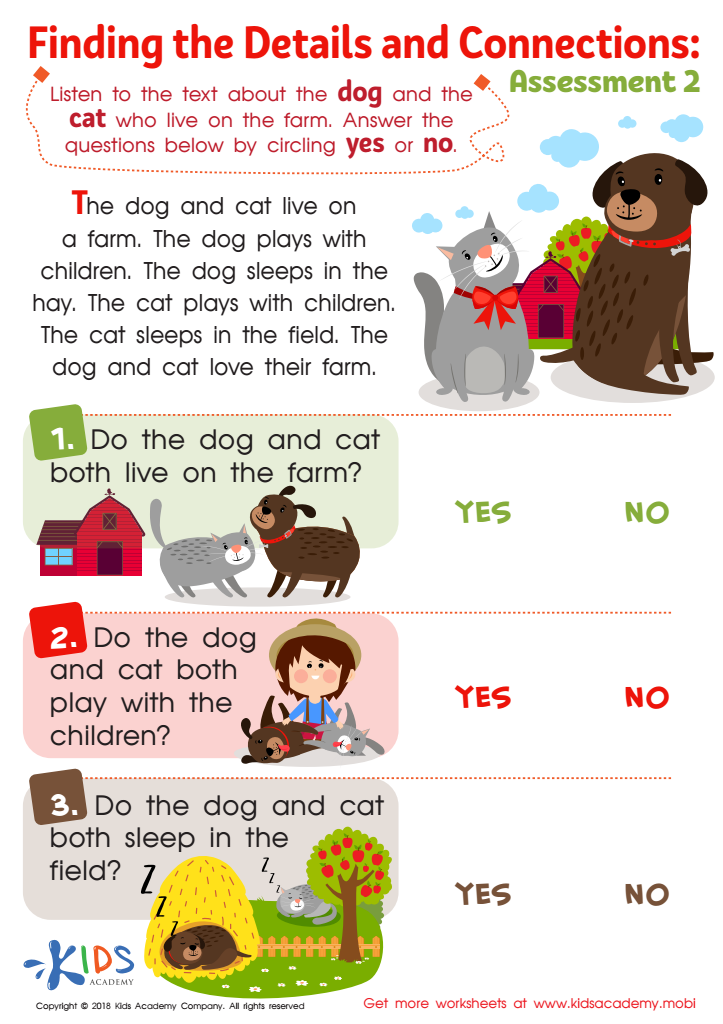

Finding the Details and Connections: Assessment 2 Worksheet
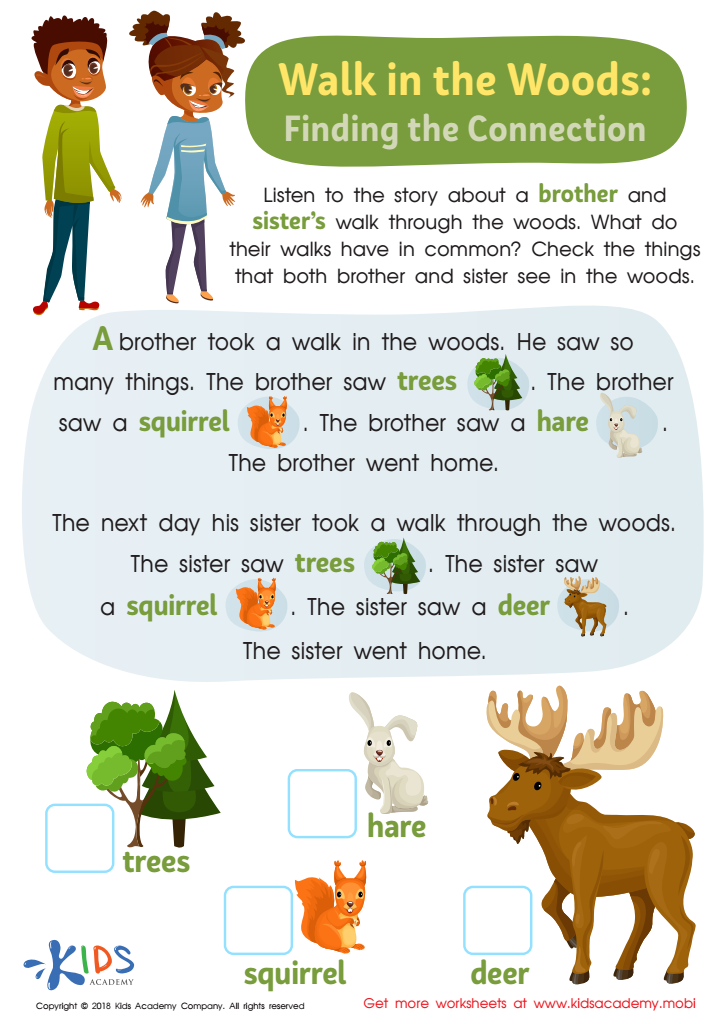

Walk In the Woods: Finding Connections Worksheet
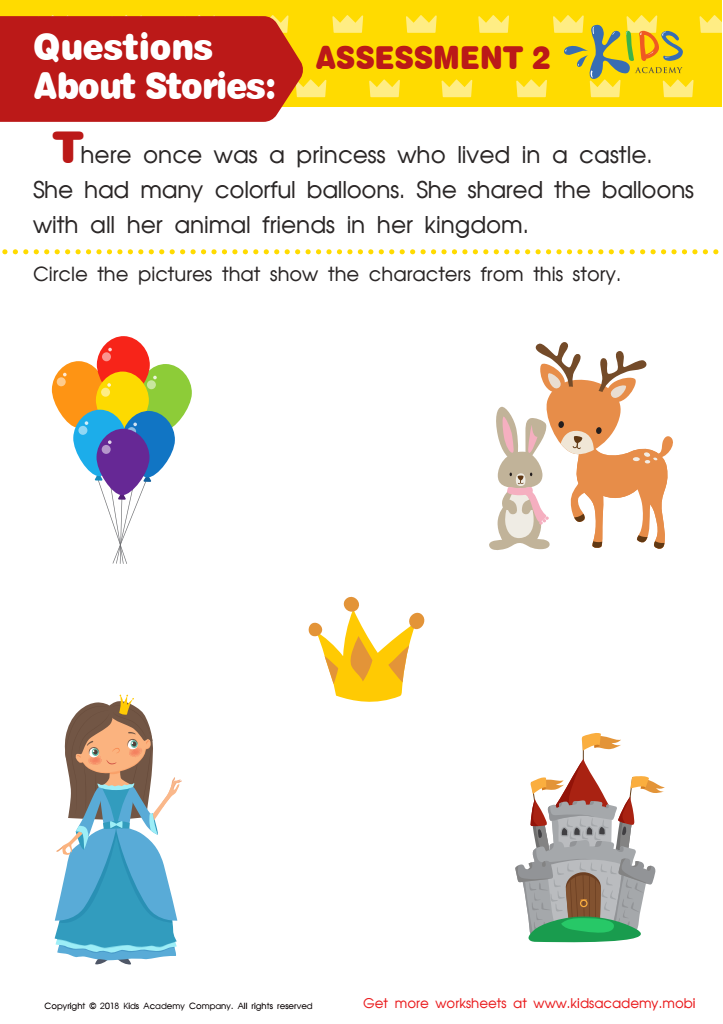

Questions About Stories: Assessment 2 Worksheet
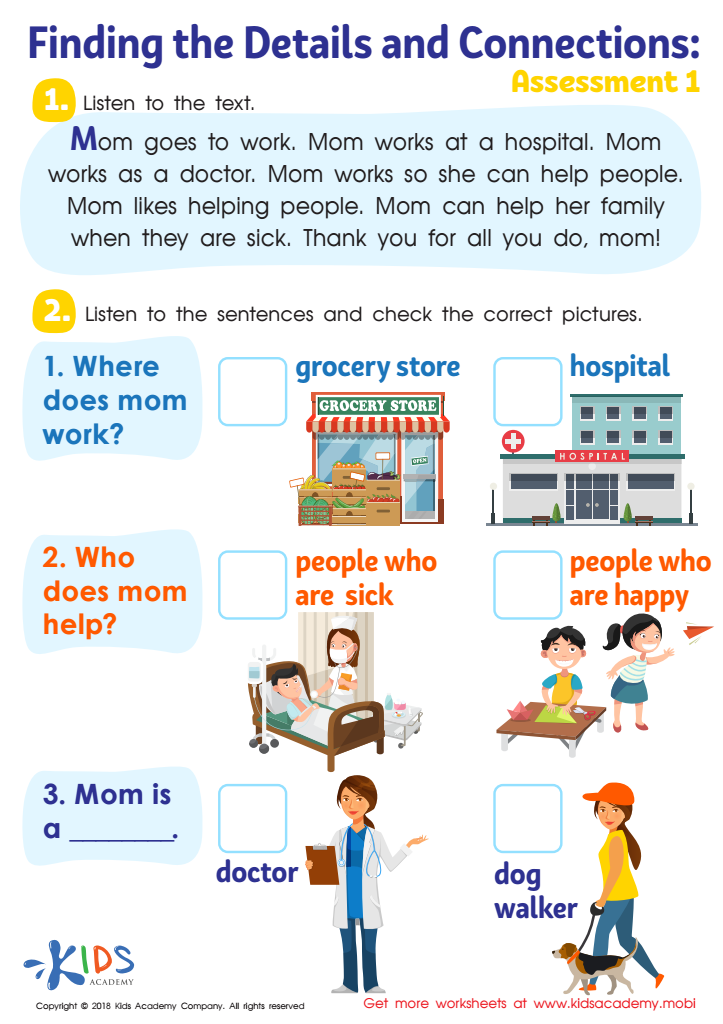

Finding the Details and Connections: Assessment 1 Worksheet
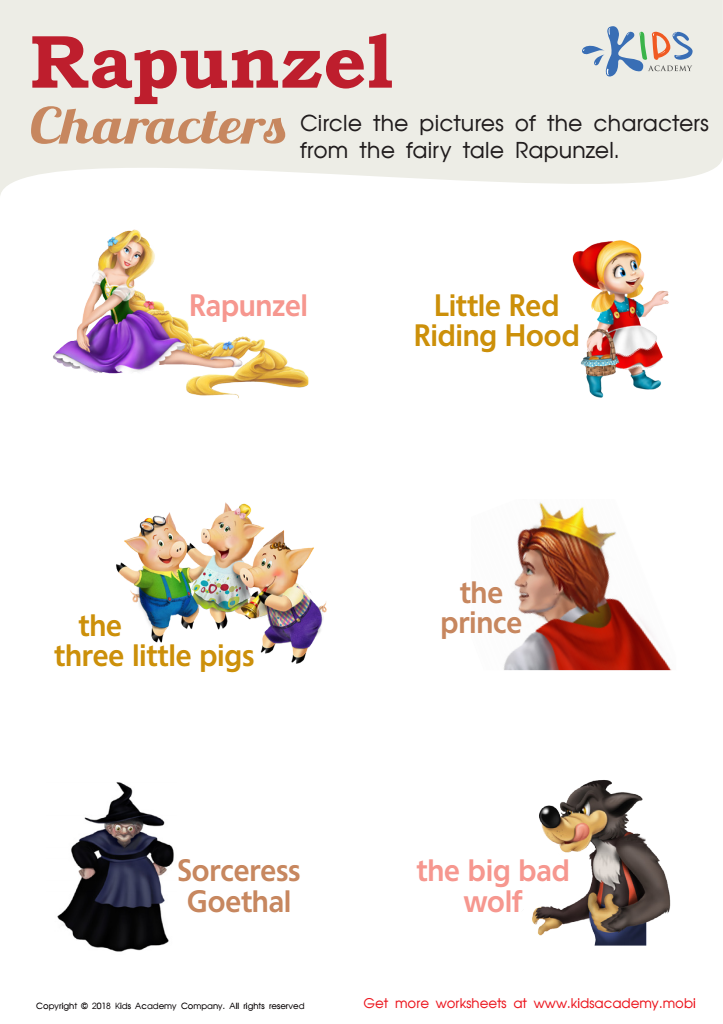

Rapunzel Characters Worksheet
Analytical skills are crucial for children aged 3-7 as they lay the foundation for critical thinking, problem-solving, and comprehension. When children engage with normal reading fiction, they not only enjoy imaginative stories but also develop the ability to analyze characters, plot structures, and moral lessons. Parents and teachers should recognize that these literary interactions stimulate cognitive development, encouraging young learners to ask questions, make predictions, and draw inferences.
As they navigate the diverse themes present in fiction, children learn to evaluate different perspectives and outcomes, fostering empathy and social awareness. This analytical framework enhances their ability to relate to others and make informed decisions. Furthermore, honing such skills early on cultivates a genuine interest in reading that can lead to lifelong learning.
By focusing on analytical skills through age-appropriate fiction, caregivers and educators can foster an environment that promotes curiosity, creativity, and a deeper understanding of the world. This foundation is not only beneficial for academic success but also for developing resilient, thoughtful individuals who can navigate complexities in life. Supporting analytical skill development through engaging stories encourages children to become proactive learners capable of tackling future challenges with confidence.

 Assign to My Students
Assign to My Students
















